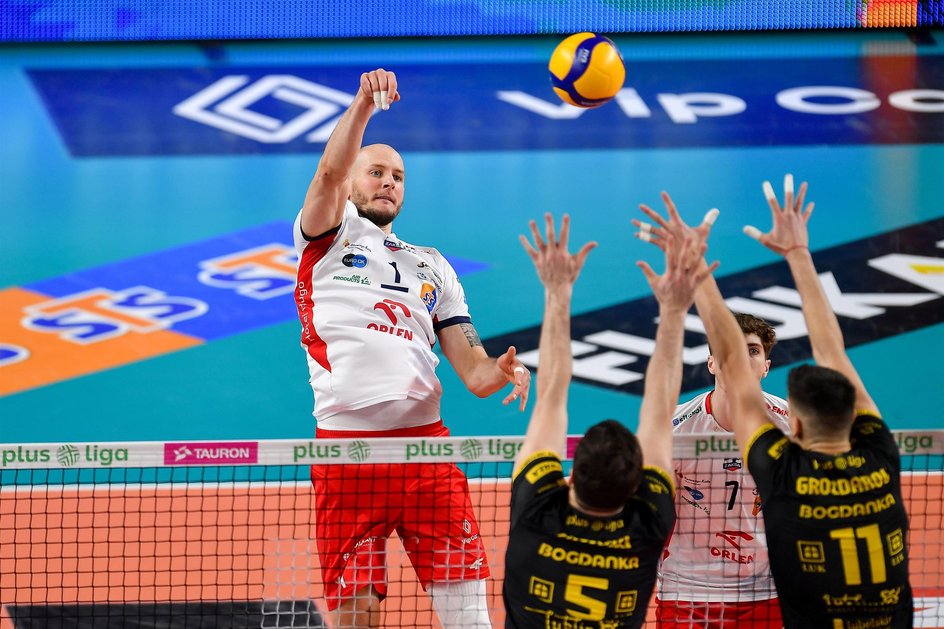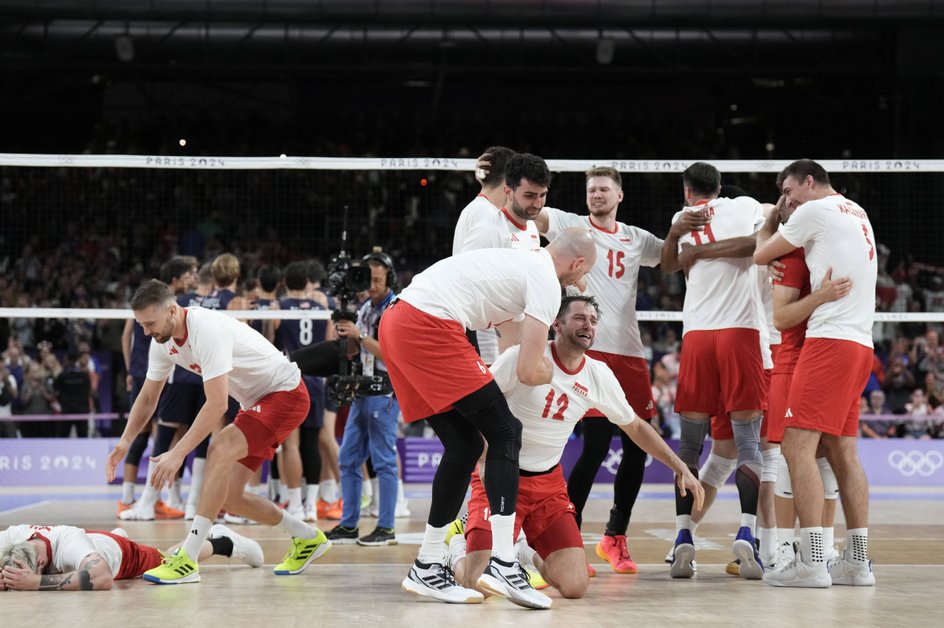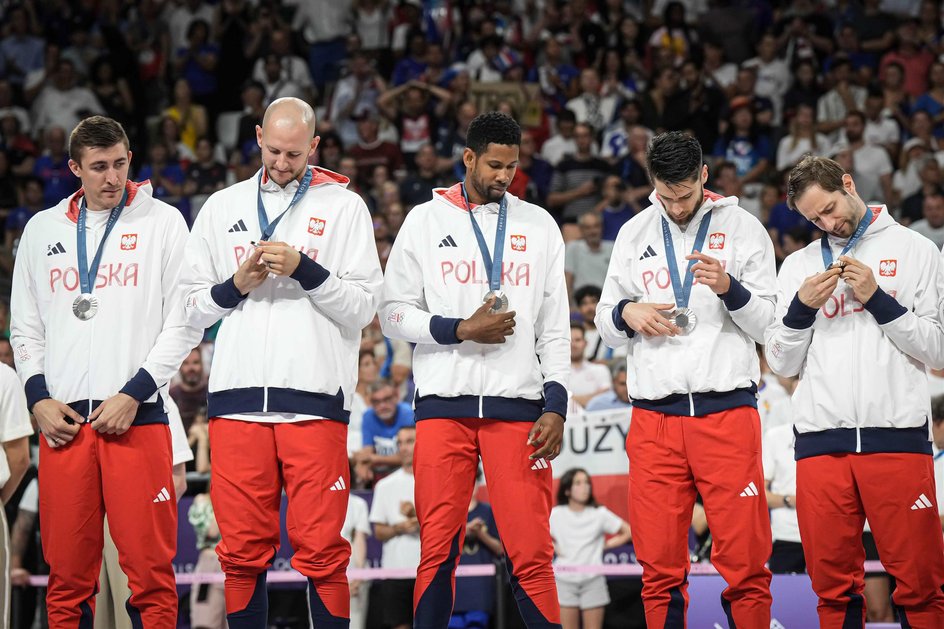Bartosz Kurek tells us about the "internal agreement". Here's what it was about
You can read the first part of the interview with Bartosz Kurek HERE . You will learn about his conversation with Nikola Grbić, why he wanted to stay in PlusLiga and the presidents missed the opportunity, and about his new club from Japan.
Edyta Kowalczyk: Was there any talk about transfers in the ZAKSA locker room?
Bartosz Kurek: We had an internal agreement that we would focus on the club season, not gossip. As the captain, I proposed this idea to maintain a certain hygiene in the locker room. I didn't want us to analyze reports from social media after training. Of course, we didn't pretend to each other that there weren't any conversations, but it wasn't like we were passing information around. The second thing is that I don't have a solution that I could propose as an alternative to the current way in which clubs announce transfers. My move to ZAKSA before last season was kept a secret for quite a long time.
Maybe because you haven't shared it with many people?
At that time, Piotr Szpaczek was still the president of the club and when we reached an agreement, we agreed that I wanted to finish the club season in peace and avoid speculation. He respected that.
And where is the problem if contracts are agreed so far in advance that a player does not even have time to play one season and already knows where he will play in the next one?
From my perspective, it's about club presidents playing against each other and offering contracts at a given time.
Isn't it true that everyone has their own interests – from the president, through the agent, to the player?
If anyone can stop this vicious circle, it's the CEOs. On the other hand, it's also a big risk. Because how can you not reach for the biggest names at the beginning of the transfer window?
Signing a contract early doesn't bother the agent, and it gives the player a certain sense of security. However, it is the club presidents who take responsibility, offering contracts to players whose professionalism they must be sure of. I don't believe that someone who has already signed a contract in another club will lower their flights by choice, because they must be aware that every weaker match affects their market value. Regardless of whether you signed a contract for the next season for 10 million dollars or for 10 PLN.

Let's go back to the squad for a moment. Being the oldest player, did anyone address you as sir at the beginning of the training camp?
No, although we had a clever plan with my former club mate from ZAKSA – Kajtek Kubicki, to scare those young guys a bit.
What was he supposed to tell them?
That it's better not to talk to me, because I'm a real jerk (laughter). The idea didn't work, because I can't keep a straight face in situations like that, so after a few minutes it was clear that it was just a joke.
What is this group of young players like?
They are passionate about volleyball. We haven't reached the point where conversations about money, business or non-sports matters dominate volleyball. They still want to become better players. Maybe their approach is slightly different from that of my generation, because today's volleyball players are more courageous in expressing their opinions, they are more willing to speak up. If they talk about their ambitions, it is because they have the right to think so, and they do not pull arguments out of thin air. This fresh blood is needed so that we do not lock ourselves in our own sauce of a dozen or so players who have been playing for the national team for years. Then it would be difficult for us to muster this enthusiasm. I have been on the national team for 19 years now and my younger colleagues help me to increase my enthusiasm for the sport.
Were the Olympic Games still on your mind for a long time after you returned from Paris?
I rarely thought back to the tournament, although I have to admit that when the topic did appear in my head, I really did analyze what had happened. I know that there are players, although not in our team, who believe that an Olympic medal will change their lives and solve all their problems. I was also waiting for my Olympic dreams to come true, but I knew that a medal would not change much in my self-esteem or inner happiness.
They played better in Tokyo, but it didn't bring a medal. Kurek explainsWould you agree with what your teammates said, that you were not in top form in Paris, and certainly not in the form you would be in in the 2023 season?
Okay, but on the other hand I think that during the Tokyo Olympics we played better than in Paris and it didn't do us any good. Michał Kubiak had health problems then, he was missed a lot and that was a problem. In Paris we were - and you can write it straight - tough motherf***ers. It was really hard to break us. And that will stay in my head.
You mean not only the semi-final with the Americans?
Not only that. We had this attitude throughout the season. I am proud that we managed to achieve such a state that we did not let ourselves be broken. Of course, you cannot base yourself on such an approach throughout the season, but we needed it then. This mentality was the result of everything we had developed earlier and allowed us to somehow get out of the perturbations that accompanied us since the beginning of last year's season.

Tomasz Fornal recently said in the podcast "Wojewódzki&Kędzierski" that the emotions after the victorious semi-final with the Americans were raging inside him so much that he couldn't sleep even after taking pills. How was it for you?
My body reacts more strongly after the tournaments themselves. It is already standard for me that after the competition is over and I return home, I am sick for the next few days. The stress and adrenaline that had accumulated in me earlier cause the body to react by lowering its immunity and ailments resembling a cold. Of course, it also happens that after important matches it is difficult for me to fall asleep, because the meeting is still playing out in my head for a long time. For me, this is just proof that this job still excites me, and I do not treat it as another day at the office.
Coach Nikola Grbić always emphasizes that everyone in your team should feel important and needed, regardless of whether they play in the first six or come in from the reserve square. You might think that these are just empty words, but the example of Grzegorz Łomacz, who was the second playmaker for Grbić the whole time, and when he entered the pitch in the Olympic semi-final, he became his greatest hero, shows their great power. Especially since we are talking about a player who was criticized for not being called up after all, because he is old and there are better people than him.
Stories like Grzesiek's really move me. Even now, when I think about it, I feel huge emotions. There are guys who deserve something and it's awesome when they finally get it. In our team, Gregor could always feel like an important part of it. He was one of the most important people, apart from me, when it comes to the voice in the locker room and on the pitch, he enjoyed a lot of respect. He also always had his own ambitions, but he was able to adapt to what the group needed at a given moment. He fought to be the best on the pitch, not to prove anything to anyone.

Let's get back to what's going on in the national team right now. Can you tell us how the whole situation with Mikołaj Sawicki, who had to leave the training camp due to a suspension for violating anti-doping rules and after he was found to have a prohibited substance, affected you?
I simply hope that the whole matter will be resolved as soon as possible. I have known Mikołaj during these few seasons in the staff and I wish him that the situation will resolve itself as successfully as possible for him.
Your target event this season is the World Championships in the Philippines in September, for which the selection process has already begun. Is this a good direction for the world federation to go in, to open up to places where there are no strong teams but there is an extremely engaged audience?
When we played the Nations League tournament there two years ago, the hall was filled to the brim, even though they don't have a strong team in the Philippines. The enthusiasm of the fans was extraordinary. Let's not kid ourselves - in terms of organization, it's hard for them to compete with Poland, but it's good to play a tournament in such an unconventional place outside Europe. This could be a great step for global volleyball.
przegladsportowy





